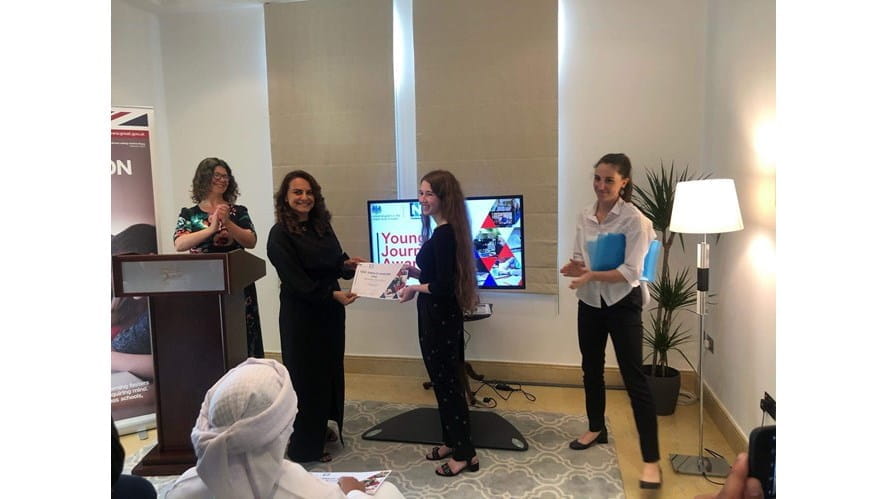
As a recipient of the award, Matilda received the following:
Read her winning article below:
Tolerance is a powerful word. It represents a set of values that we as a society hope to follow, conveying inclusion, openness and respect, and encouraging acceptance of others. It is a virtue that many aspire to, as it creates a world where discrimination is obsolete.
Modern societies are more globalised, diverse and multi-cultural than ever. Once monocultural societies have been transformed into eclectic melting pots, filled with people from across the globe. In this new complex world, our differences have never been so evident. This new reality means that interaction with people who hold different viewpoints to our own is something that we experience on a daily basis. Tolerance has become a necessity for peaceful coexistence in this modern world.
But tolerance is more complex than it may first appear. Here we encounter one of society’s oldest dilemmas: the paradox of tolerance. Proposed by Karl Popper in 1945, the paradox is a philosophical principle that states “In order to maintain a tolerant society, the society must be intolerant of intolerance.” For Popper, tolerance had boundaries. Unfettered tolerance would open the door for dominance by the intolerant. In the words of Charles Spurgeon, "Give them an inch and they will take a mile”.
Should we condone the intolerant? Can we truly call ourselves tolerant if we choose not to? For many, the answer is no. They believe that if we do not tolerate intolerance, then by definition we are intolerant because we are discriminating against those who hold different views.
It is my belief that the exact opposite is true. Popper’s belief that tolerance can only truly exist in a society where people who are intolerant are not accepted is one that I agree with. By allowing intolerance to exist you risk it spreading and destroying unity and tolerance. I believe that this is a risk that we should not be willing to take. This sentiment is one that many countries are beginning to agree with, including the United Arab Emirates.
The UAE is one of the most multi-cultural countries in the world, with people from more than 200 nationalities living here. For decades it has worked to establish itself as a global capital for tolerance, fostering acceptance and unity and integrating open-mindedness into the very fabric of its society. 2019 was declared the year of tolerance in the UAE, an important step in highlighting its value and raising awareness of the country’s aims to engender morals of collaboration and coexistence, both locally and internationally.
Tolerance also has strong connections to the UAE’s origins. It was a key pillar of Sheikh Zayed Bin Sultan Al Nahyan’s thoughts and formed the bedrock of many of his principles. His work to instil peace and unity through the creation of the UAE’s tolerance approach formed a country where acceptance and compassion eclipse hostility and acrimony.
The UAE also ensures its residents understand that intolerance will not be condoned. Legislature such as the Anti-Discrimination and Hatred Act, which states that residents should “refrain from discriminating against people for reasons based on their religion, doctrine, caste, race, colour, or ethnic origin” emphasizes the UAE’s strong condemnation of prejudice.
Intolerance leads to hatred and discrimination. It has no place in society, where our differences make us not only unique, but stronger. The UAE is one of the few countries that has worked to effectively remove discrimination. By inspiring peace and understanding and condemning prejudice, it’s creating a society in which all are equal. It has taught us that when we choose to embrace others, we choose to change the world for the better.
Matilda, Year 12